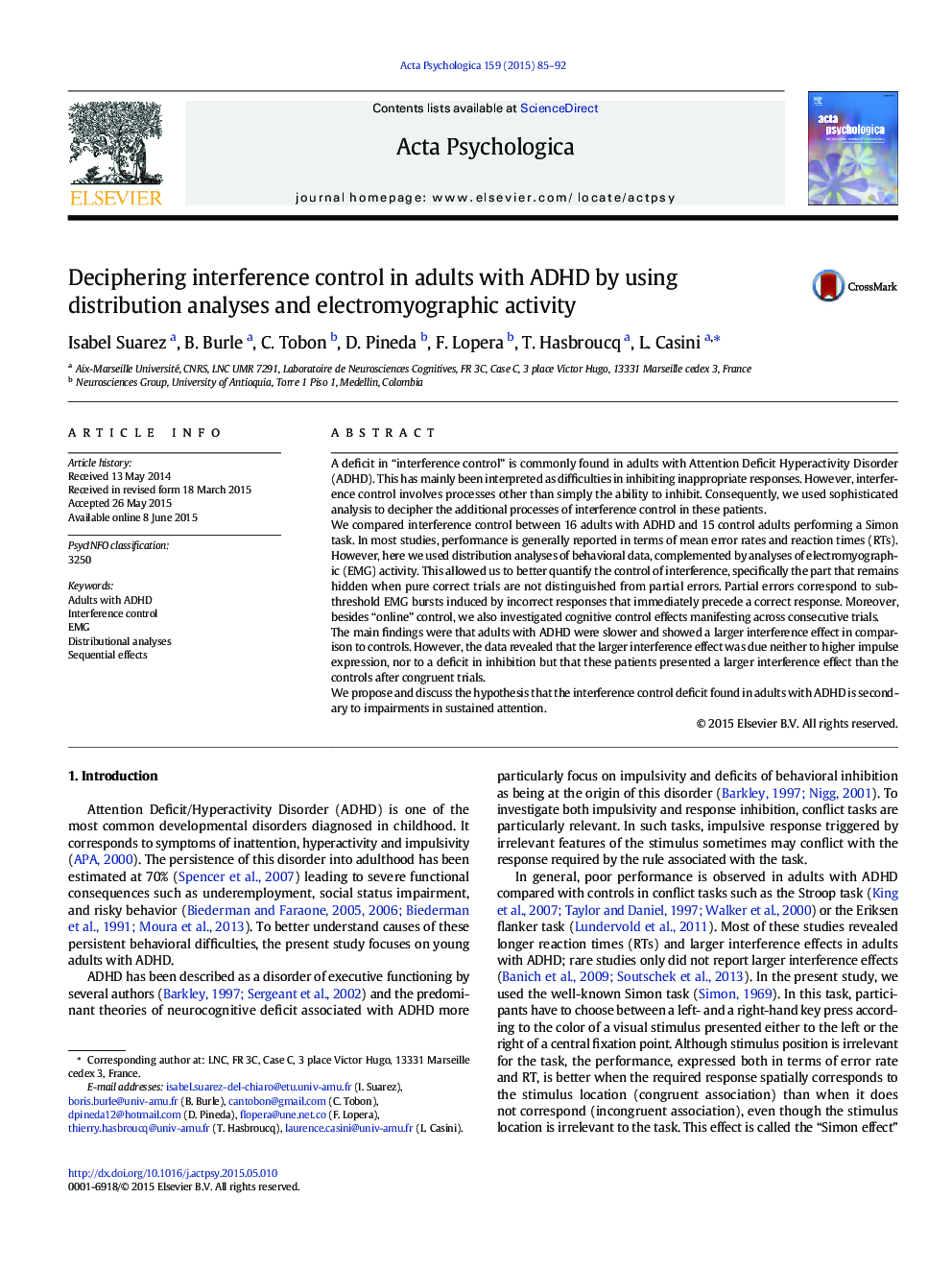| Article ID | Journal | Published Year | Pages | File Type |
|---|---|---|---|---|
| 919718 | Acta Psychologica | 2015 | 8 Pages |
•We compared performance of adults with ADHD and control adults in a Simon task.•Distributional analyses and EMG activity were used to decipher interference control.•A larger interference effect was found in adults with ADHD.•Neither a higher impulse expression nor a deficit in inhibition explained this effect.•Sustained attention deficits could explain interference control difficulties.
A deficit in “interference control” is commonly found in adults with Attention Deficit Hyperactivity Disorder (ADHD). This has mainly been interpreted as difficulties in inhibiting inappropriate responses. However, interference control involves processes other than simply the ability to inhibit. Consequently, we used sophisticated analysis to decipher the additional processes of interference control in these patients.We compared interference control between 16 adults with ADHD and 15 control adults performing a Simon task. In most studies, performance is generally reported in terms of mean error rates and reaction times (RTs). However, here we used distribution analyses of behavioral data, complemented by analyses of electromyographic (EMG) activity. This allowed us to better quantify the control of interference, specifically the part that remains hidden when pure correct trials are not distinguished from partial errors. Partial errors correspond to sub-threshold EMG bursts induced by incorrect responses that immediately precede a correct response. Moreover, besides “online” control, we also investigated cognitive control effects manifesting across consecutive trials.The main findings were that adults with ADHD were slower and showed a larger interference effect in comparison to controls. However, the data revealed that the larger interference effect was due neither to higher impulse expression, nor to a deficit in inhibition but that these patients presented a larger interference effect than the controls after congruent trials.We propose and discuss the hypothesis that the interference control deficit found in adults with ADHD is secondary to impairments in sustained attention.
